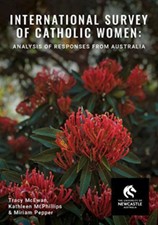
A help in time of need – Gerald A. Arbuckle, Abuse and Cover-Up: Refounding the Catholic Church in Trauma
July 9, 2020Gerald Arbuckle’s latest book is a useful tool for those engaged in discerning a way forward for the Catholic church in the light of the Plenary Council. It resonates with the key themes that have emerged in the six recently published Discernment Papers (on the Plenary Council website). More than that, it clarifies what must be the essential foundations of a renewed church.
Arbuckle likes to use the word refounding rather than reforming or renewing. Our task is to refound the Catholic church, which means going back to our roots, to our sacred story, the life, death and resurrection of Jesus Christ. “Refounding is primarily a transformative faith journey, in which there are no quick-fixes.” This emphasis on refounding deeply aligns with the desire of Catholics to get back to Jesus and the gospels, something I heard many times in Listening and Dialogue sessions but which also emerged as a major theme in the final report in July 2019.
The challenges are enormous, as Arbuckle details in chapters about Catholic church culture and practice. Culture is complex and deep-rooted and resists change. However, the abuse crisis has, in his words, “cast the church into the fear-evoking chaos of liminality.” In this place of trauma, there are three choices: paralysis, a retreat into fundamentalism, or the work of refounding. Part of the rationale for this book is to push the case for refounding and to sketch some action plans to head us in the right direction.
What becomes clear in the course of the book is that unless certain things change, the culture will remain what it is. In other words, to refound the church requires some quite specific changes to business as usual. It can be stated very simply. We need structural changes to our current models of governance to give the laity some authority in decision making along with bishops and priests. However, structural changes alone will not suffice for true and lasting cultural change. We need a conversion of our ordained leaders so that they are committed to all that is entailed in refounding; and we need a conversion of the laity to realize that by their baptism they are called to be co-responsible for the mission of the church. For all of us, it is a call to holiness, to trust in one another, to work collaboratively, and to focus on mission, vision and values.
These three foundational principles are much more elaborated, of course, in the book, with well thought-out strategies for change. What Arbuckle calls for is along the same lines as what we have been hearing from thousands of Catholics through the Plenary Council process, and also what is being proposed by the governance review, The Light from the Southern Cross. What Arbuckle’s book does, though, is to highlight the need for “rock-hard foundations: ongoing radical structural reforms inspired by profound conversion to the person and mission of Jesus Christ.” Rock-hard foundations. For that very reason, it should be required reading for all those who will be writing the agenda for the Plenary Council.
Patricia Gemmell
July 2020
Patricia has a Masters in Theology, is a member of the Australian Grail National Leadership Team and has been a parishioner of St Leonard's Naremburn for 34 years.










